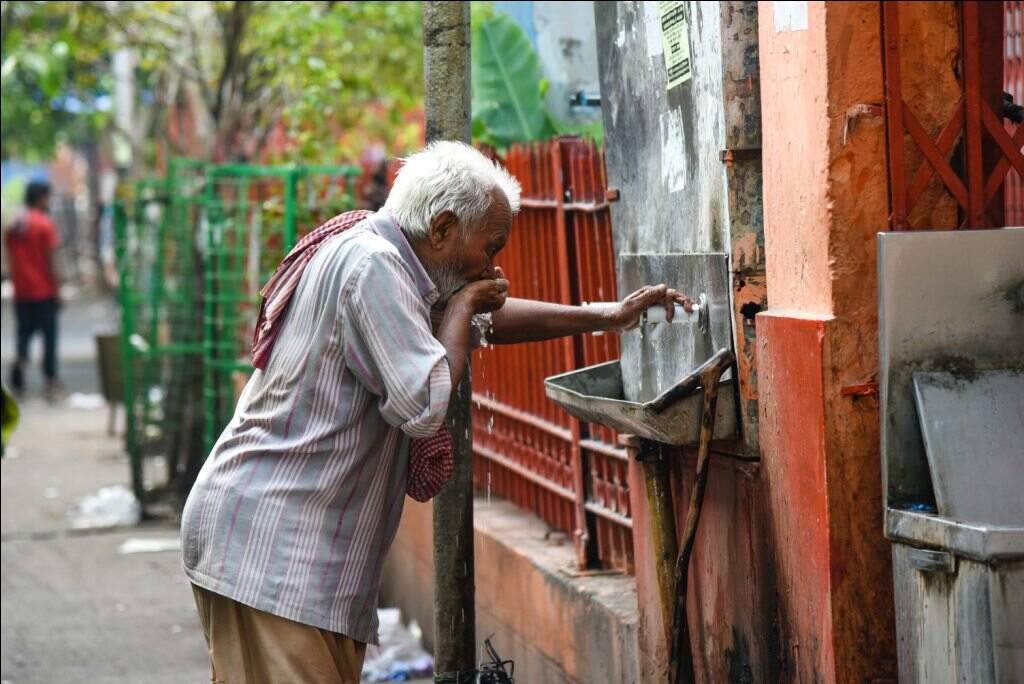By 2030, nearly 40% of Indian cities could run out of drinking water. It’s not a distant worry- it’s already happening. If you’ve lived in Bengaluru or Chennai, you’ve likely felt the pinch: dry taps, water tankers, and the silent anxiety of wondering whether tomorrow’s supply will come.
Yet hope emerges: technology, paired with a mindset revolution, could be our lifeline.
Why Are Our Cities Drying Up?
India depends heavily on groundwater, which now makes up over 60% of the country’s water supply. Unfortunately, this vital resource is being extracted much faster than nature can replenish it. A NASA study revealed that North India’s water table is dropping by as much as a foot each year. Rapid urbanization adds more stress. – For ex: Chennai faced a 400 million litre daily deficit in 2019.
Bengaluru, once called the “City of Lakes,” is now rationing water in several neighbourhoods. By 2030, water demand could double, while supply may fall short by 50%.
The Tech That Can Save Our Cities
Innovative technologies are playing a pivotal role in making India’s cities water-resilient such as:
Smart Water Meters & Data Monitoring
Smart meters mirror smart electricity grids, tracking consumption in real time and detecting leaks early. Cities like Chandigarh, Pune, and Hyderabad are piloting them. One Frost & Sullivan report projects India’s smart meter demand to hit 500,000 units by 2025, growing at 15% CAGR.
These meters empower consumers with data, reduce non-revenue water (NRW), and enable tiered pricing as seen in Europe-where higher use incurs steeper charges.
Data Is Power: IoT for Real-Time Monitoring
India loses 38% of its water to leaks, theft, and inefficiency- collectively known as Non-Revenue Water (NRW). Smart water meters powered by IoT and AI are addressing this problem by:
· Tracking real-time water usage
· Detecting leaks early
· Enabling fair and transparent billing
· Saving both water and money
Smart Wastewater Reuse
Advanced treatment systems like Membrane Bioreactor (MBR) technology are transforming sewage into clean, reusable water. These systems occupy one-fourth the space of traditional setups, effectively remove bacteria and viruses and produce water pure enough for industrial reuse.
Cities like Delhi, Hyderabad, and Pune have already adopted this technology. Under the AMRUT 2.0 mission, India aims to reuse 20% of urban and 40% of industrial water by 2030.
Mobile STPs for Lake Rejuvenation
Mobile Sewage Treatment Plants are being used in cities like Mumbai to clean up polluted lakes and ponds. These compact, portable units help restore ecosystems while easing pressure on freshwater sources.
“We’ve made incredible progress with electricity: real-time data, tiered pricing, and incentives. Water conservation needs the same transformation”
Tiered Pricing + Rebates
Like rising tariffs on energy, water pricing can reward modest use and discourage excess. State incentives such as property tax rebates for rainwater harvesting in Karnataka and Maharashtra have been seen to work effectively.
Rebates for Water-Efficient Fixtures
Just as energy utilities incentivize LED bulbs, water users should be rewarded for installing low-flow showers, dual-flush toilets, and efficient faucets-widely endorsed by conservation experts.
Awareness and behavioural change are key to saving water. As Konarak highlights- technology helps but a lasting impact happens when people truly value water, fix leaks, reuse wisely, and treat it as the precious resource it is.
Conclusion
India’s water future hinges on the actions we take today. With the right mix of technology, policy reform, and public engagement, we can prevent our cities from reaching “Day Zero.”
What Must Change?
· Adoption of smart water meters for transparency and accountability
· Implementation of rainwater harvesting and greywater recycling
· Use of real-time leak detection and IoT monitoring
· Restoration of traditional water bodies and recharge zones
· Public awareness and policy reform working hand-in-hand
This is not just an infrastructure challenge-it’s a mindset challenge. Water must be treated as a shared, sacred resource, not a commodity.



 Author of this article Mr Raghunandan Prasad is a third-generation industrialist and innovative leader in the smart water management industry. As the Managing Director of Konarak Meters, he spearheads the development of cutting-edge smart water metering solutions, addressing India’s critical water conservation challenges.
Author of this article Mr Raghunandan Prasad is a third-generation industrialist and innovative leader in the smart water management industry. As the Managing Director of Konarak Meters, he spearheads the development of cutting-edge smart water metering solutions, addressing India’s critical water conservation challenges.